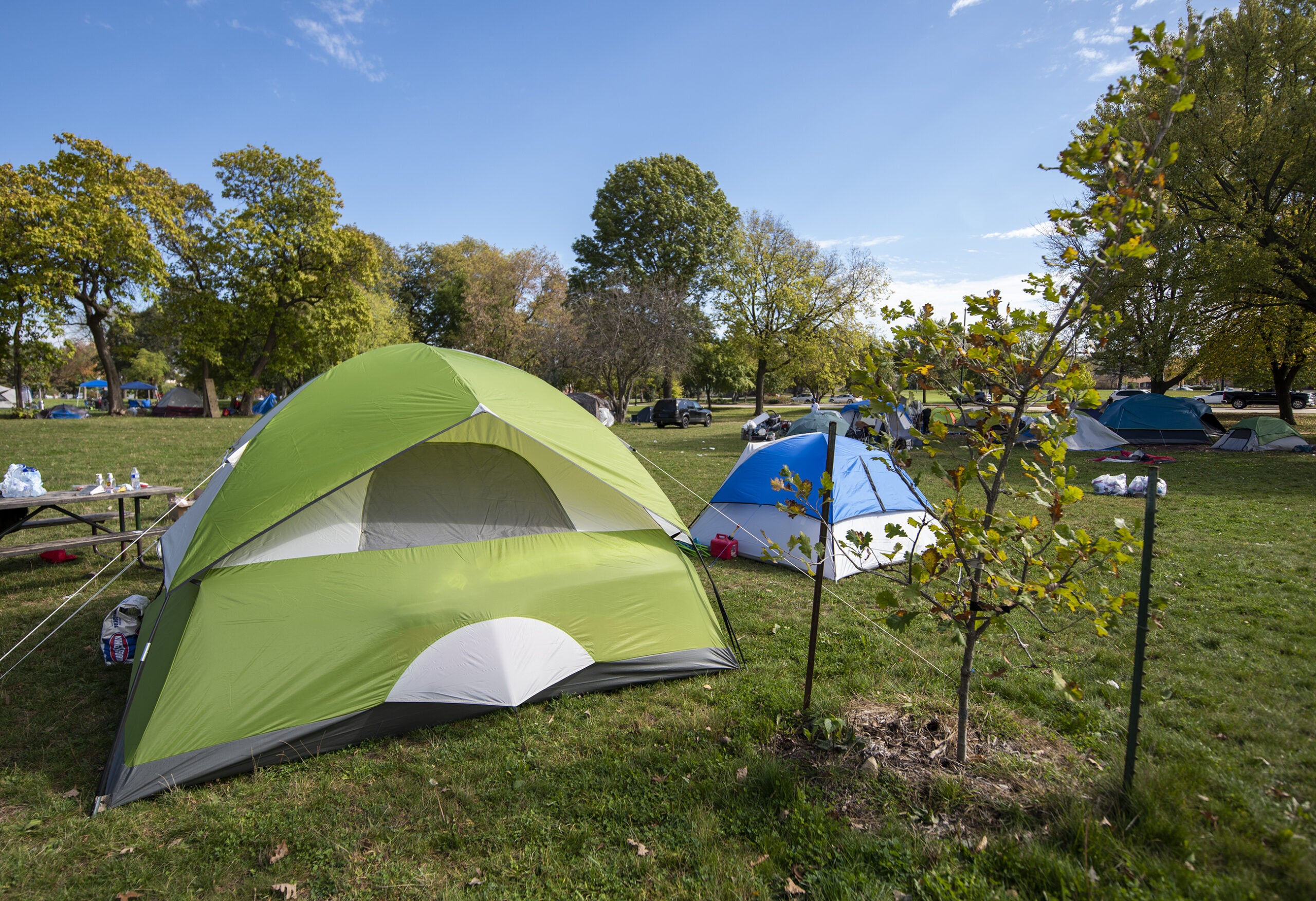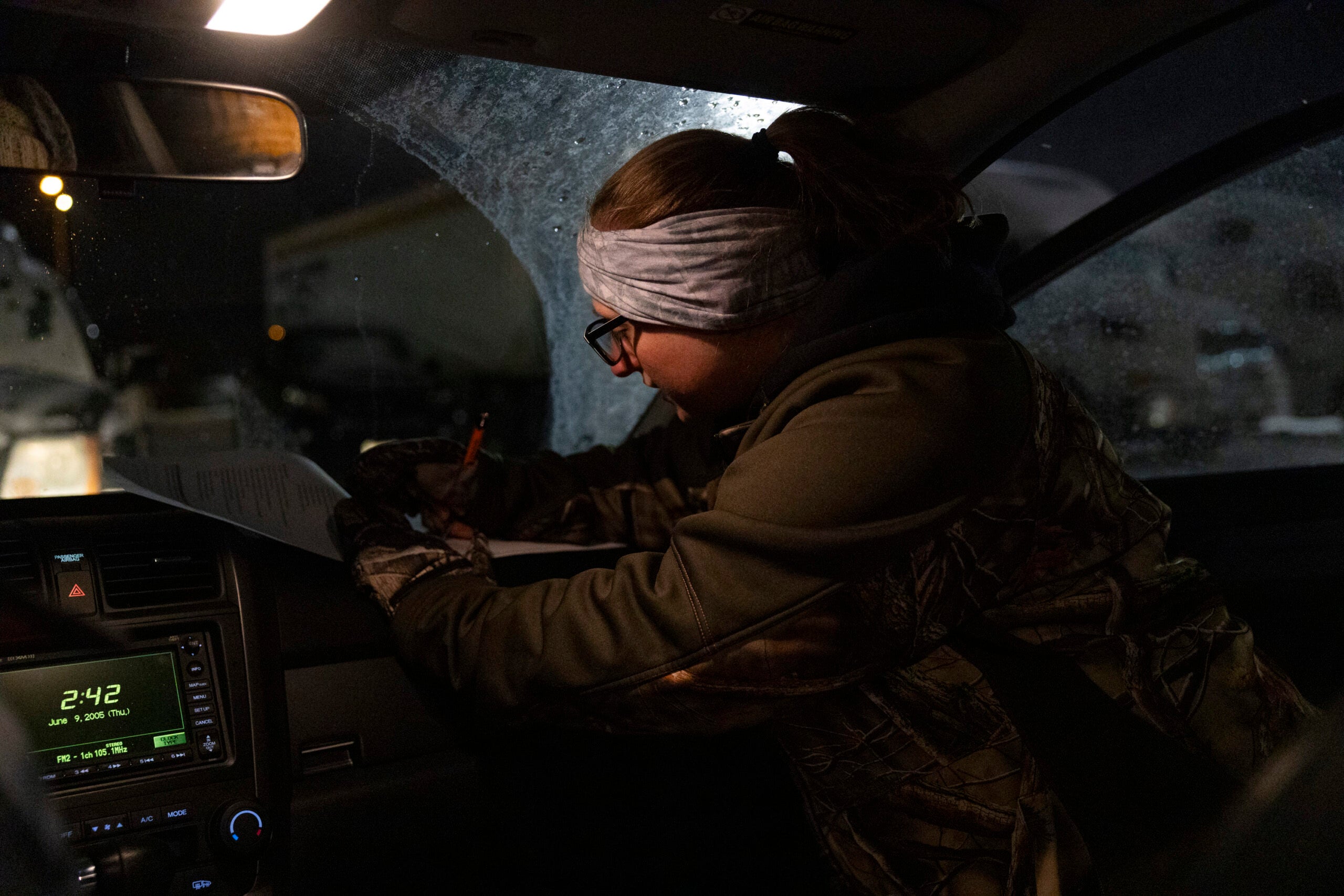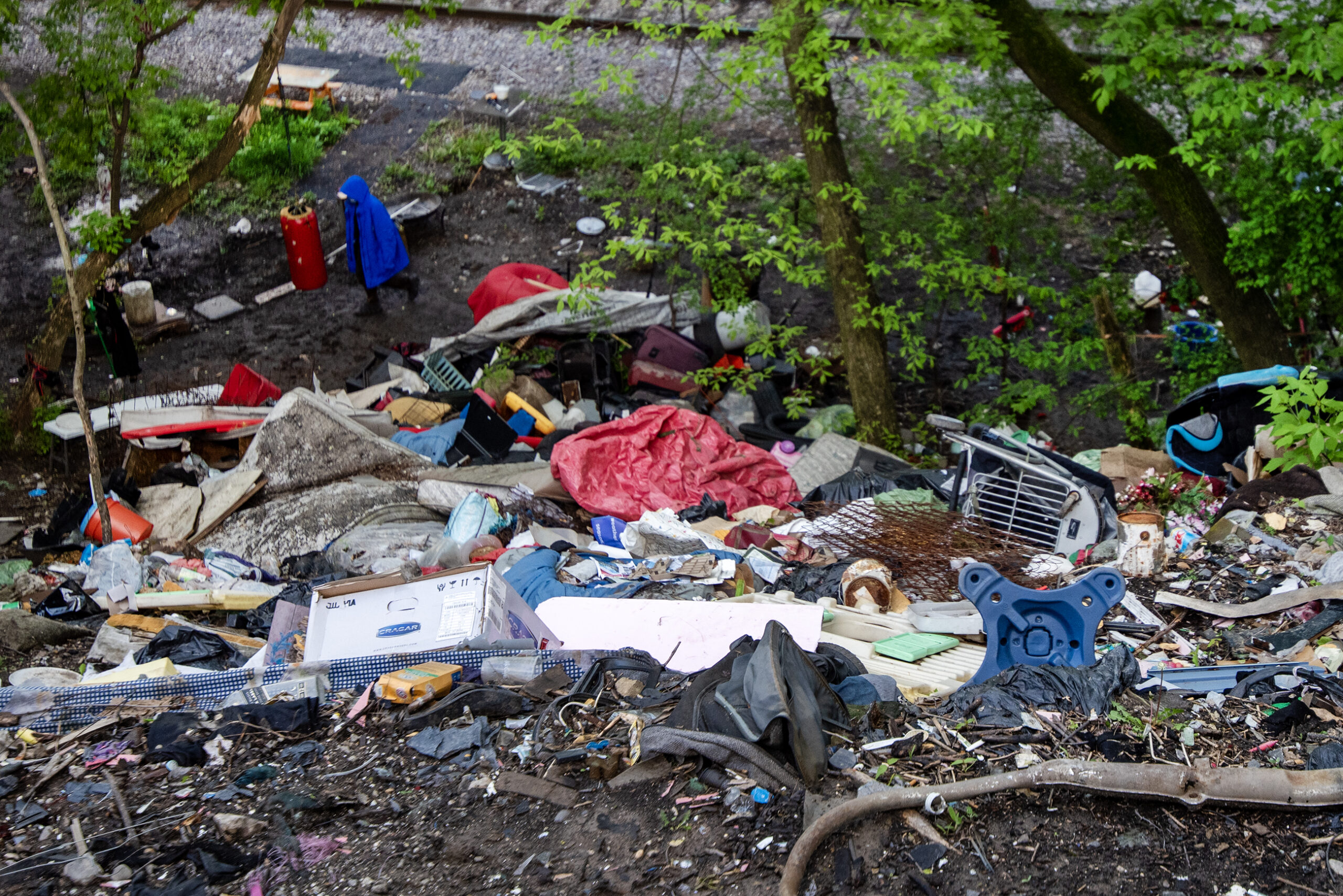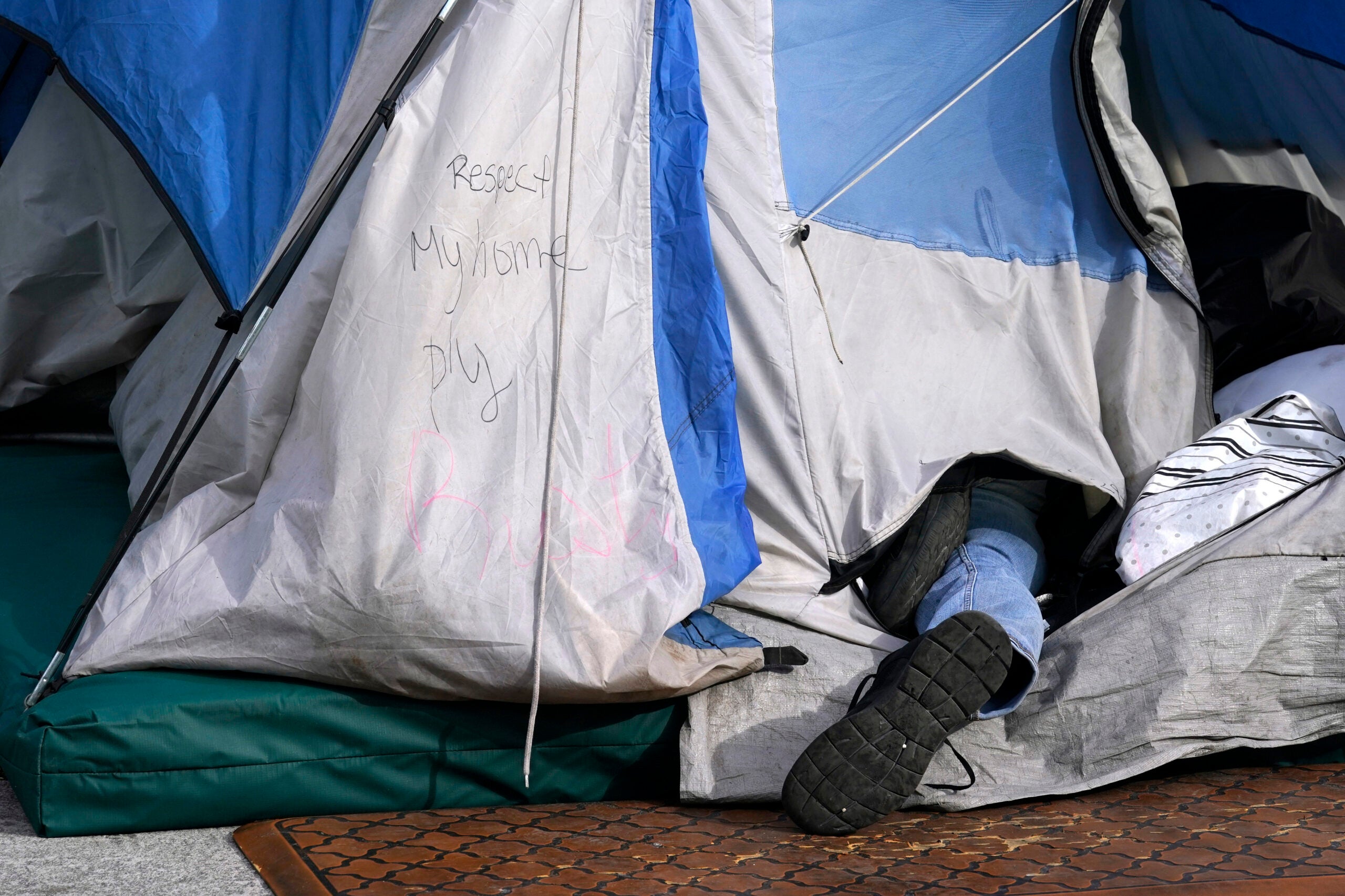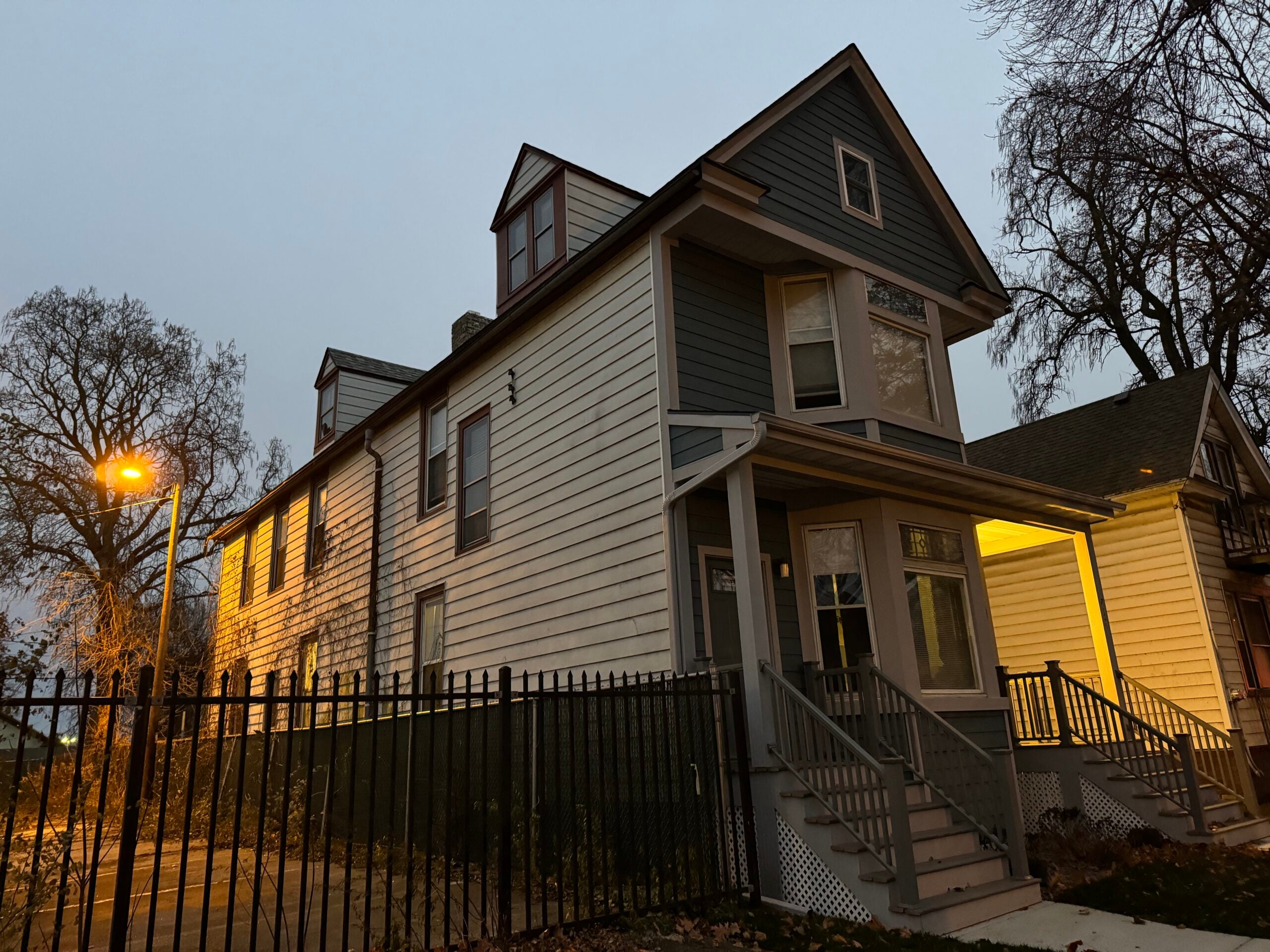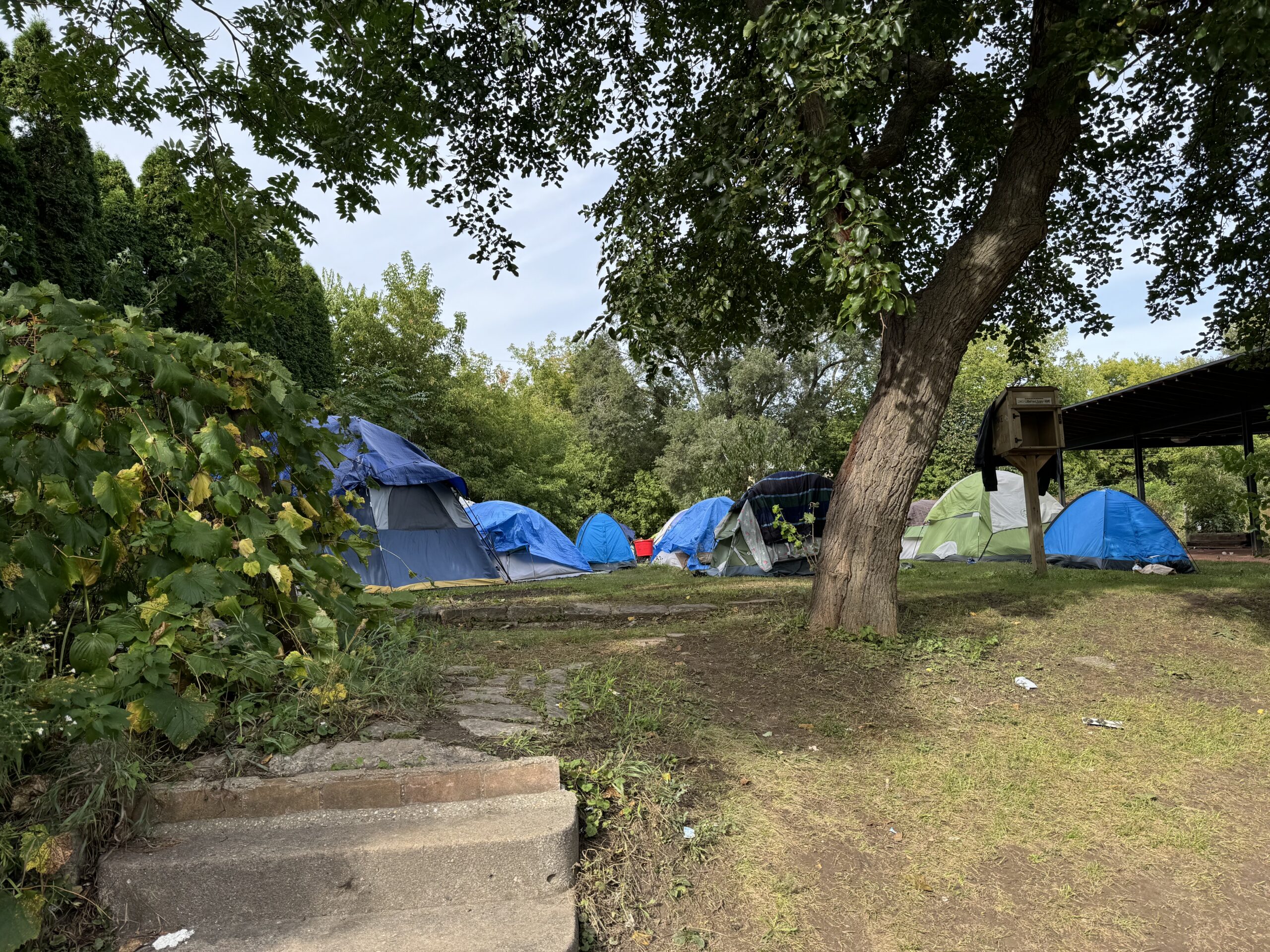Wisconsin cities are looking for ways to care for an increased number of people experiencing homelessness this winter.
Joe Volk, executive director of the Wisconsin Coalition Against Homelessness, said communities across the state have been allocating money to increase services for unsheltered people. He said much of the funding has come from federal pandemic recovery aid and is often being used to provide hotel rooms and other temporary housing.
Volk said there are more people experiencing homelessness this fall than prior to the COVID-19 pandemic, including families with children.
Stay informed on the latest news
Sign up for WPR’s email newsletter.
“We’ve been through an unimaginable year and a half of social and economic disruption,” Volk said. “Certainly things would probably be a lot worse if the federal government hadn’t stepped in, in terms of enhanced unemployment and an eviction moratorium and things of that sort. But that being said, there’s a lot of people whose lives were pushed off the rails and a certain number of those folks are going to fall through the cracks and become homeless.”
La Crosse funds temporary shelter
The La Crosse City Council voted last Thursday to allocate $700,000 received through the federal American Rescue Plan Act to fund a temporary winter shelter from November to March.
Council Member Mackenzie Mindel said officials estimate there are around 130 unsheltered people in the city. The funding will be used by a local nonprofit to rent 60 to 70 rooms at a local hotel starting this week. The group will also provide meals and additional services for the people staying there.
Mindel said the scramble to ensure there is enough shelter space is nothing new for the city.
“Every year, we see the community get worried in the late summer thinking, ‘What are we going to do with all of the folks that are on the street?’ And the issue that continues to come up every year is that we may have the support services, but we do not have the space,” Mindel said.
La Crosse has seen a rising number of people living in tents and other temporary shelters in public parks this year. Over the summer, officials moved the population to a less-popular park out of the downtown area.
Mindel said designating Houska Park for camping was welcomed by many people experiencing homelessness.
“For the first time in many of their lives, they were not worried about being chased out of a park. They could be there safely and find a place that felt like home,” Mindel said. “But it is also the case that these folks are living in conditions that they should not be in, and the city needs to take a leadership role in ensuring that all of its citizens have safe, stable housing.”
Madison opens encampment site, but advocates say there’s more to be done
In Madison, city officials have taken similar steps to relocate people living in tents at a local park to a new city-owned encampment. The site has 30 prefabricated shelters with heating and electricity. The encampment also has bathroom facilities and on-site support staff from local nonprofits.
Jim O’Keefe, community development director for the city, said the site is nearly complete and staff expect to start welcoming people to move in this week.
He said the number of unsheltered people typically contracts in the winter months, with some people deciding to use congregate shelters or stay with family and friends. But the COVID-19 pandemic has changed the city’s normal response.
“The pandemic really was a major disruption to our network of homeless services. It led to the closure of the men’s shelter facility and setting up a newer larger safer alternative … It also prompted the city and county to take advantage of local hotel rooms in a very significant way,” O’Keefe said. “It’s a little bit difficult to compare the time period since the emergence of the pandemic to prior to that. But there’s no question there has always been a population of people in the city and county experiencing homelessness who are unsheltered.”
But Volk argues Madison’s new encampment is an imperfect response to the problem.
“What they’re really doing is just moving people from tents in a park to 8- by 8-foot little structures,” Volk said. “They’ve actually put this encampment really far out of the city, so it will be interesting to see how many people actually take them up on the offer.”
Volk said being on the outskirts of the city will make it harder for people to access stores and community services.
O’Keefe said residents of the site will be provided a monthly bus pass and the nonprofit groups operating the site have purchased a van to provide supplemental transportation. They’re also working with other community groups to provide a daily meal service.
He said the Madison Common Council also recently approved funding to rent 35 rooms at a local hotel. Between the two options, he said the city believes they are close to providing options for all of the people currently camping at the public park.
“We’re not suggesting that this is the end of our efforts to try to find better accommodations for people in the city who are unsheltered. A week ago, we had zero alternatives. Now we’ve got these 65 slots,” O’Keefe said. “I would also hasten to add that we have congregate shelter facilities, in the instance of the men’s shelter, which is also a clean and spacious and safe venue which is operating at just a little bit over 50 percent capacity.”
While the issue of homelessness existed across Wisconsin well before the pandemic, Volk said it will simply take time to see the number of people experiencing housing insecurity decline.
“It’s just going to take some time for our social structures and our economy to reach some kind of equilibrium again, where things start to work better,” Volk said.
Mindel believes the economic shocks of the pandemic brought more people closer to the edge homelessness. But she said COVID-19 could also be the key to permanently changing the system that is causing so much housing insecurity.
“We have found ourselves with a once in a lifetime opportunity, which is this (American Rescue Plan Act) funding. And we have the responsibility to do something bold that will change the systemic barriers that contribute to some of these issues,” Mindel said.
Editor’s note: WPR’s Diane Bezucha contributed to this story.
Wisconsin Public Radio, © Copyright 2025, Board of Regents of the University of Wisconsin System and Wisconsin Educational Communications Board.
